L'Envoi
I have led you through the wonderland of one century of literature.
That this literature is Russian literature cannot much matter to you since you cannot read Russian—and in the art of literature (I understand it as an art) language is the only reality that divides this universal art into national arts. I have continuously stressed the point in this —and other courses—that literature belongs not to the department of general ideas but to the department of specific words and images.
Tolstoy (1828-1910) and Chekhov (1860-1904) are the last writers we could study in detail. Some of you cannot help noticing that from them to our times—or, less pompously, to
A first difficulty for the American student is that the best artists of the age (1900 to 1950) are so abominably translated.
The second difficulty for the American student is that in search for a very few masterpieces, most of them in verse (a few poems by Vladimir Mayakovski and Boris Pasternak), he has to wade through an amorphous and monster mass of mediocre stuff whose only purpose is political.
The period itself falls into two parts, roughly
1900-1917 1920-1957
The first period reveals a definite flourishing of all art forms. The lyrical poems of Aleksandr Blok (1880-1921) and an extraordinary novel by Andrey Bely (1880-1934),
The second part of the period (1920-1957) I have sketched for you in the beginning of this course. It is the period of increasing governmental pressure, of writers guided by governmental decrees, of poets inspired by the political police, of decline in literature. Dictatorship is always conservative in art—so no wonder that such Russian writers who did not escape from Russia produced a kind of literature that is far more bourgeois than the most bourgeois English or French literature.
(Only at the very beginning of the Soviet period was there an attempt on the part of propaganda to make people believe that avant-garde politics were somehow synonymous with avant-garde art.) A great number of artists went into exile, and, as it becomes very clear today, the main wonders of Russian literature of our time have been produced by expatriates. This, however, is a somewhat personal subject, and it is here that I shall stop.
199
200
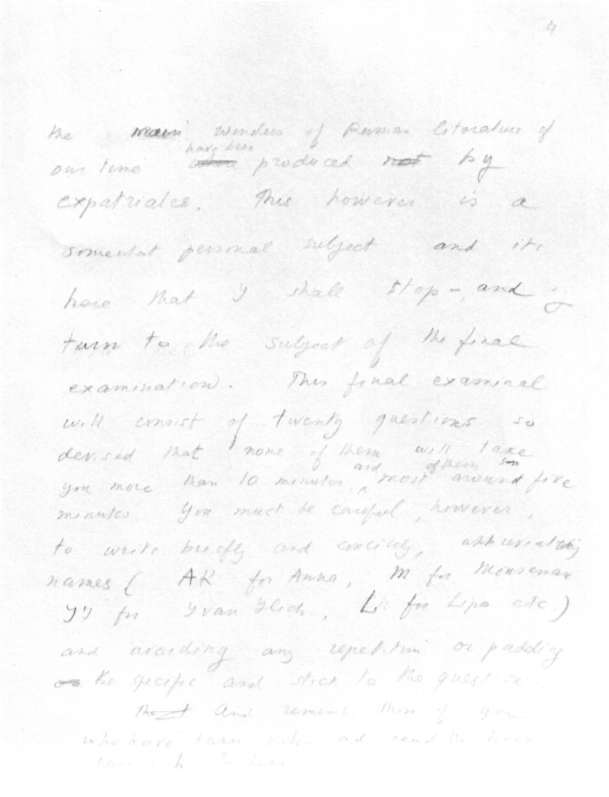
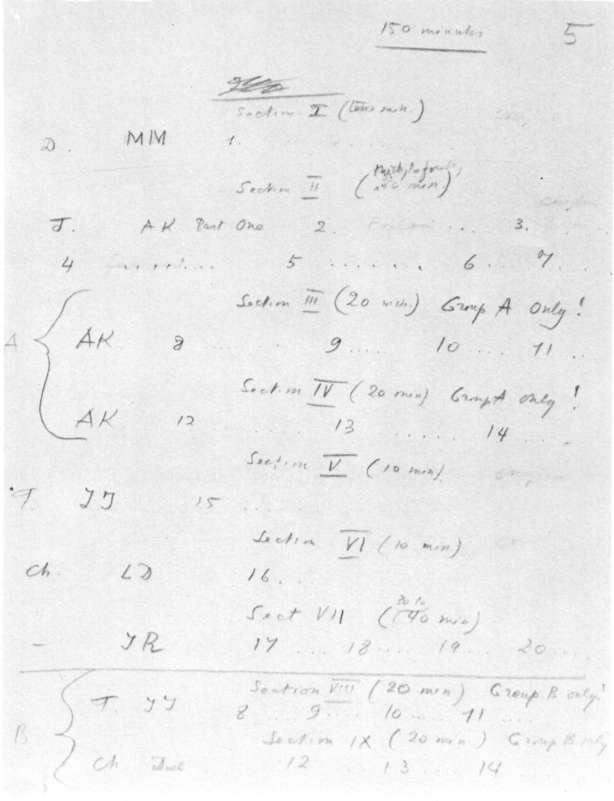
APPENDIX: Nabokov's notes for an exam on Russian literature
201
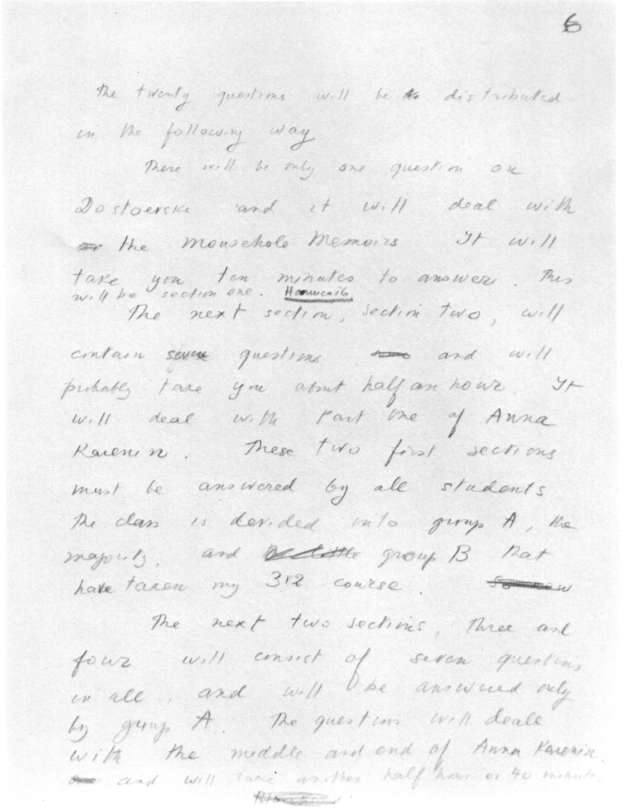
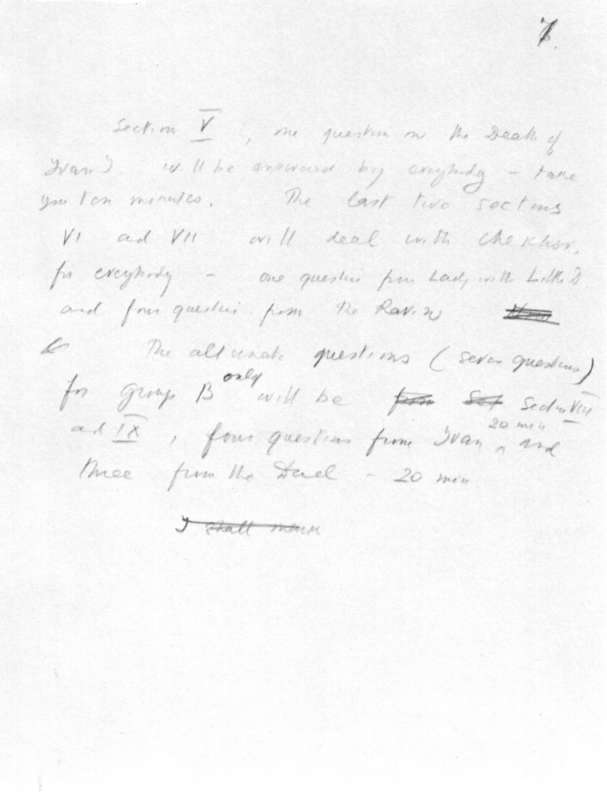
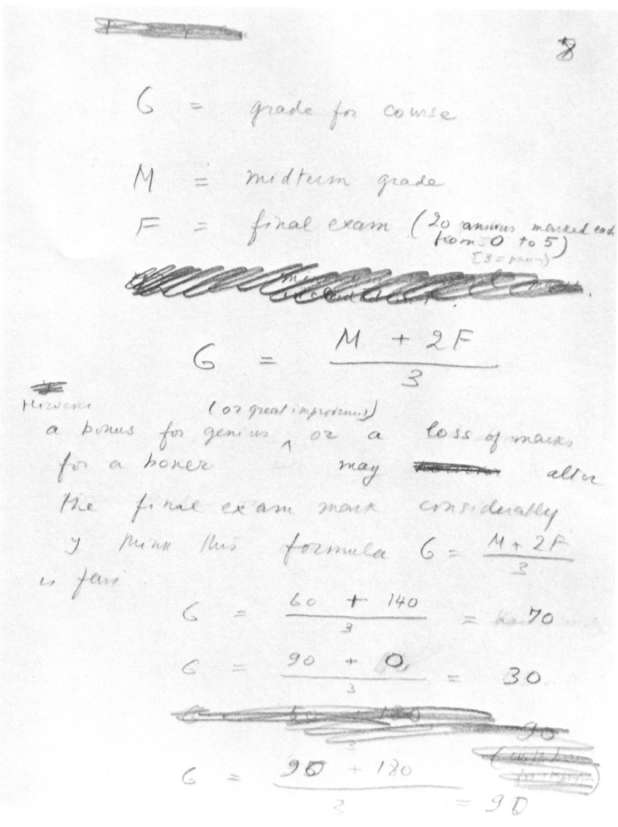
202

